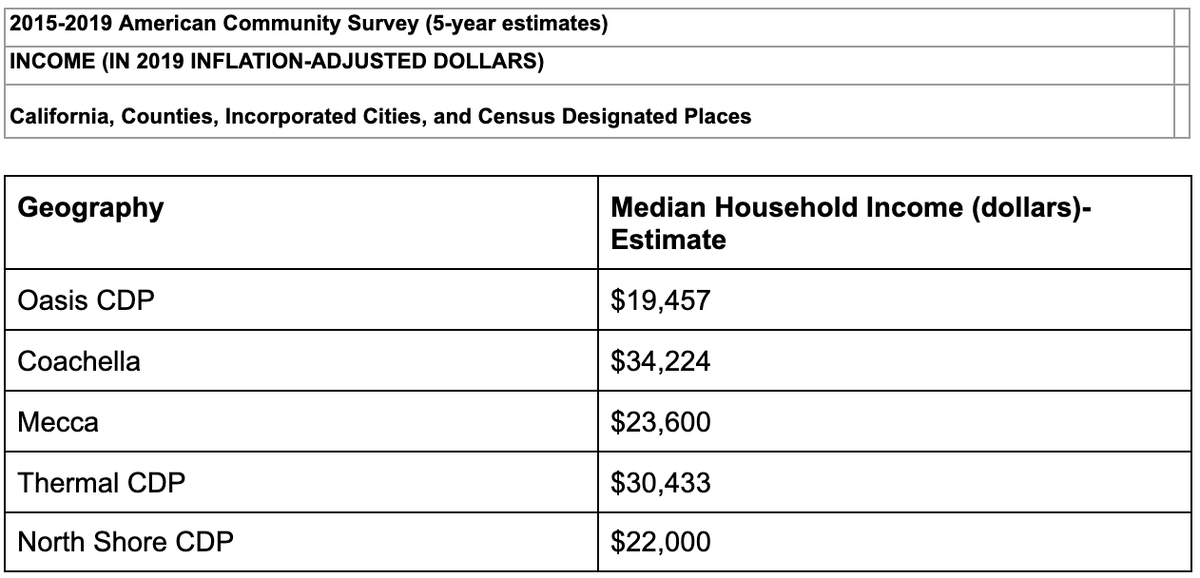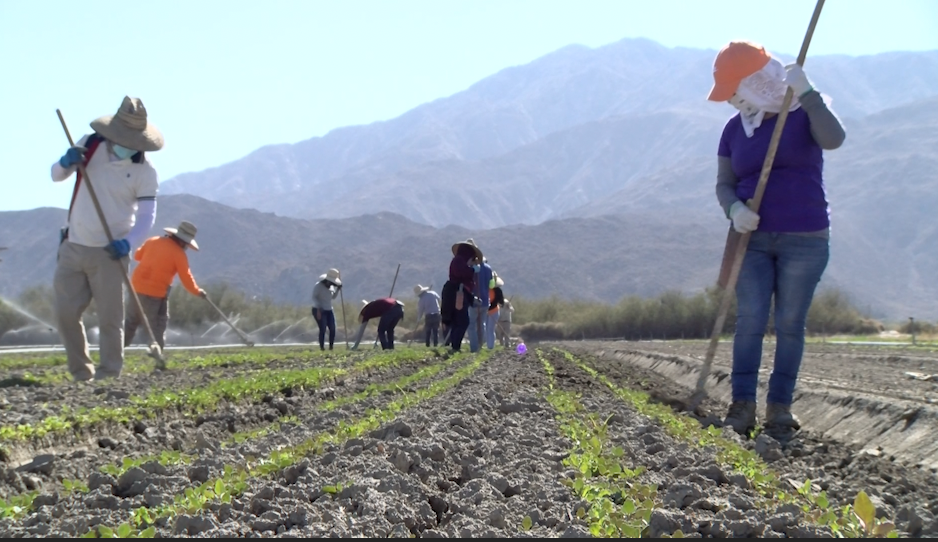Kids in eastern Coachella Valley are among those bearing the academic brunt of the pandemic
THERMAL, Calif - "We have internet at our house but I feel like it’s not strong enough, maybe because of the location we are at or there’s no signal."
At a time when internet connectivity and high-speed service are more important than they have ever been, the pandemic has broadened the gap for disadvantaged communities that were already struggling for basic infrastructure. The widespread impacts of virtual learning have hit particularly hard for kids attending schools in rural communities, including the the eastern Coachella Valley.
A typical morning for the Nazario family means 4 of 6 kids sprawled out at their Thermal home as each one of them is attentively glued to their school lessons. But every so often, a screen turns black or they're fighting to get back into class after the signal drops.
"They pretty much get kicked out, they get frustrated, which I see it on their faces. I’m like 'I’m sorry, what can I do,'" said Liliana Nazario, the oldest of her 6 siblings.
Nazario is a University of California, Santa Cruz pre-med student who has had to stay at home for virtual learning like the rest of her siblings. Though the family has internet, not very many people can be on it at once.
"I’m basically the only one that gets just connected to the house internet," said Nazario.
Nazario and her brother are both college students who work to help in any way they can. The 4 youngest siblings attend the Coachella Valley Unified School District. Each of them has their own iPad and hotspot, provided by the district. At times, however, it's not enough.
Parents Jose and Maria are active in their children's education. At times, teachers have called Jose before to tell him his kids are falling behind.
In a translated response from Spanish, the father said "I tell them to see what can they do to get better--taking classes or do extra work before the end of the cycle.”
"I attend some parent meetings with my dad and hear how some other families are struggling," said Liliana.
The Nazario family isn't alone. They are among dozens of other families across the eastern Coachella Valley who are bearing the academic perils of the pandemic.
The school district currently deploys roughly 20 buses to different areas, where they are able to transmit WiFi to hard-to-reach communities. The bus schedules change weekly, based on student needs.
"This is a low-income community, most of its inhabitants are farmworkers," said Adonis Galarza-Toledo, Coachella Valley Unified School District board member.
The rural area presents the biggest challenge. The most recent numbers from the state census in 2019 reflect staggering median incomes, many of which fall under the poverty line.

According to the census, more than 37 percent of residents in Mecca were living in poverty in 2019, while nearly half of the people in Oasis faced similar disparities, at 48 percent.
"We’re falling behind in the education," said Galarza-Toledo.
Galarza-Toledo is the youngest member serving on the CVUSDs board of education. The 24-year-old Oasis native said the biggest issue is the lack of infrastructure.
"Wifi is not a luxury no more, it’s a necessity."
In November, the board approved the installment of 6 private LTE network towers funded by Federal Care Act dollars. They will be set up at different schools within the district, and are aimed to reach roughly 900 families. Though it's a start, the small towers likely will not be fully operating until the end of this school year.
"We do reach out to students just so that they know that we’re still there, and we haven’t forgotten about them because sometimes we can’t see them. In reaching out to many of our students, the number one issue that we’re identifying is just a lot of our students don’t have a stable connection," said CVUSD Expanded Learning Programs coordinator, Bea Gonzalez.
Gonzalez has worked with hundreds of students in the after school program. They now hold the program virtually.
"Even now during the pandemic, we’re sending home materials that the students can use to do the fitness outside, sports equipment, art supplies," said Gonzalez.
Just as it did in person, the program provides an outlet for students. However, because of internet issues many kids are missing out.
"After school programs have become a very safe space where children feel that they’re a blessing to us, that they’re sacred," said Gonzalez.
The issues are widespread, affecting both the classroom and extracurricular activities.
"There is not a single person today that does not make use of the internet for anything that we need to do," said Assemblyman Eduardo Garcia of the state's 56th district.
Garcia is a member of the state's 'Closing the Digital Divide' task force, which is a group that has recently introduced a series of bills to bridge the gap for disadvantaged communities.
"Some of the proposals are not just about building infrastructure for those who do not have service, but for those who do have service, increasing capacity, speed- making sure that when you’re at a particular place, if you’ve got 4-5 people logged onto a service, that they can actually receive efficient and effective service," said Garcia.
A major goal is to make high-speed broadband service available at affordable rates, at a time when internet access is critical.
"Working with the school districts is really what we need to be doing, including our families and our children in order to make sure they don’t lose any opportunity during this distance learning from home," said Garcia.
Many of the proposed bills will have to be visited by the appropriate committees. If they pass through the state legislature, Garcia said they could be on the governor's desk by May or June.
Some of the proposed bills can be found here:
https://leginfo.legislature.ca.gov/faces/billNavClient.xhtml?bill_id=202120220AB1176
https://leginfo.legislature.ca.gov/faces/billTextClient.xhtml?bill_id=202120220AB34
https://leginfo.legislature.ca.gov/faces/billNavClient.xhtml?bill_id=202120220AB41

